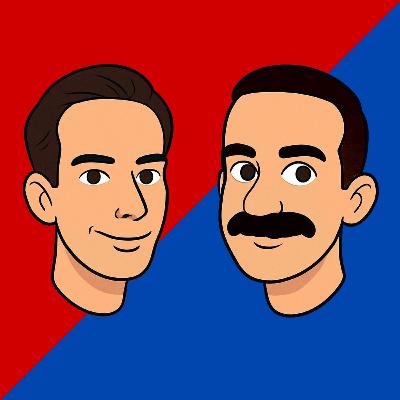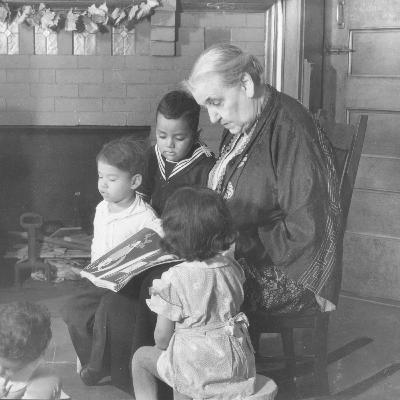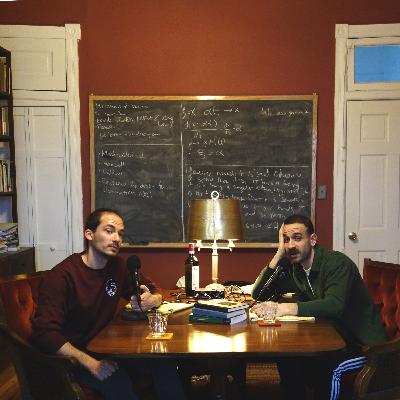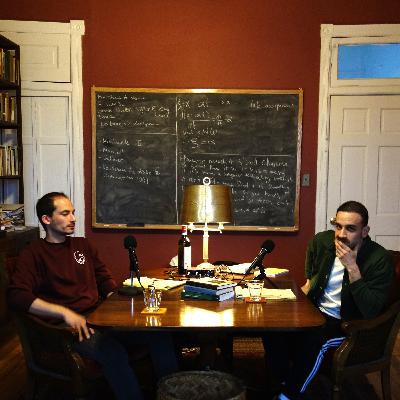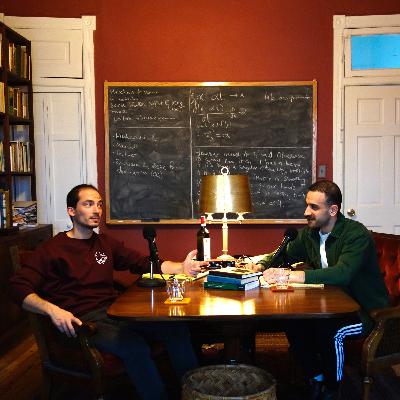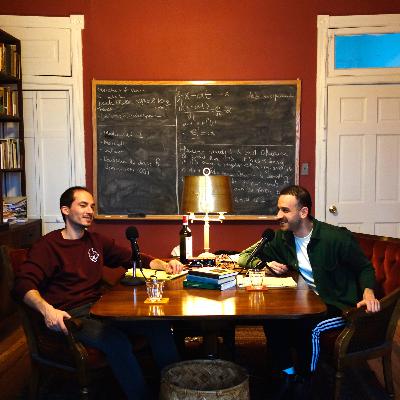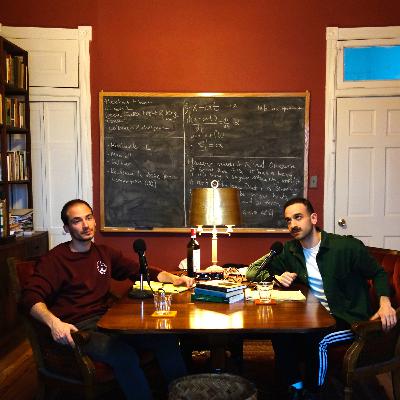Discover Invasive Thoughts
Invasive Thoughts

13 Episodes
Reverse
Is Nietzsche a philosopher or an anti-philosopher? Is Western philosophical thought one monolithic tradition? Sean Kirkland (DePaul Philosophy) joins us to discuss the position of such "threshold" thinkers as Plato and Aristotle on one hand and Heidegger and Nietzsche on the other. He also relates what he learned by translating Nietzsche for the new Stanford translation of the Complete Works. (This includes Nietzsche's punctuation habits: Sean counts 13 colons in one sentence from Nietzsche's drafts and 91 exclamation marks in The Birth of Tragedy.) Along the way, we return to the Greeks and the tragic vision of the world captured in Aristotle’s philosophy.
In this episode of Invasive Thoughts, we’re joined by Jon Cogburn, Chair of Philosophy at Louisiana State University. Jon sketches a history of the Continental–Analytic divide in American philosophy and suggests what it might take to bridge it today. Jon explains how more than one metaphysics could be true at the same time, and how even a self-contradictory metaphysics could be true. We go on to discuss contemporary philosophy’s attraction to set theory; the flat ontologies of Graham Harman and Tristan Garcia; ancient and contemporary forms of panpsychism; and, along the way, why philosophers so often find themselves at odds with administrators. We talk about the religion of Silicon Valley, philosophy’s relationship to popular culture (Jon has co-authored a book on philosophy and Dungeons & Dragons), and finally Jon’s Buddhism and how it informs his philosophical outlook.
David Wellbery (UChicago German, Social Thought) joins us to discuss Goethe's work, life, and milieu. He describes Goethe's position at the center of an intellectual and artistic world which included Schiller, Hölderlin, Fichte, Hegel, Schelling, the Schlegels, the Humboldts, and many other intellectual and scientific figures of the period. He also explains some of Goethe's administrative responsibilities, carried out with incredible energy and efficiency: from the oversight of the University of Jena to the directorship of a mining operation in Weimar. This episode will give listeners a sense of Goethe's astonishingly various achievements in literature and natural philosophy. David also describes his own hopes for the humanities via an idea of world literature.
Richard Strier (UChicago English, emeritus) recites the poem that changed his career, explains why formalism and historicism should be friends, offers us a way of reading George Herbert’s “Love” (III) and lets us in on a current argument with a friend about a Bob Dylan song.
Terry Pinkard, renowned Hegel scholar and translator of the Phenomenology of Spirit (2018) sits down with us to discuss his own intellectual career; the challenges of reading, translating, and understanding Hegel; when and how Hegel found a home in America and his relation to American democracy; and American pragmatism.#Americanphilosophy #pragmatism #Hegel #Dewey #translation #Germanidealism #PhenomenologyofSpirit
We return to Peirce for an exploration of his more speculative, systematic essays ("A Guess at the Riddle", "Evolutionary Love”, and others). What should all systems of thought have in common? What would it mean to privilege spontaneity, chance, and even love in a philosophical worldview? What is “agapasm”? What happens to philosophy after Darwin? And what mystical meaning do the numbers 1, 2, and 3 have for an antimetaphysical thinker like Peirce?#pragmatism #speculativephilosophy #tychism #agapasm #synechism #PeircenotPierce #Americanphilosophy
How do advances in neuroscience disrupt our intuitive notions of the self? Thomas Metzinger's The Ego Tunnel brings together philosophy and the science of the brain to offers a novel redefinition of what it means to be an individual in the world. Direct brain manipulation, psychopharmacology, induced out-of-body experiences—all of these pose new political and philosophical challenges for humanity.
For our sixth episode, we talk about the writings and social work of Jane Addams, American pragmatist philosopher, founder of Hull House in Chicago, and co-founder of the ACLU. For her peace advocacy, Addams (1860-1935) was the first American woman to win a Nobel Prize. She bantered with Tolstoy and became Chicago's first female garbage inspector. Tune in to hear more about her ideas and activities.
What distinguishes human beings from animals? The question has been a mainstay of philosophy for over two thousand years. Is it our bipedalism? Our rationality? Or could it be our capacity for boredom? Giorgio Agamben takes up this question and its consequences in The Open: Man and Animal (2002).
What is literary criticism? What concept of literature underlies it? Northrop Frye's 1957 Anatomy of Criticism sketches a vast and comprehensive map of the literary universe and shows us what it would look like to entertain a total order of literature. We discuss aspects of Frye's visionary project as well as literary criticism's status today.
Quentin Meillassoux's 2006 After Finitude seemed like it was going to revolutionize philosophy. It didn't. We talk about its radical implications and why it may still have traction today.
Around the time he was finishing the Phenomenology of Spirit, Hegel almost became director of Goethe's botanical gardens in Jena. We play around with affinities between Goethe's botany and Hegel's idealism.
"Certainly the greatest American thinker ever." - Bertrand Russell. A foray into the thought of Charles Sanders Peirce, father of pragmatism, largely through six classic essays.


